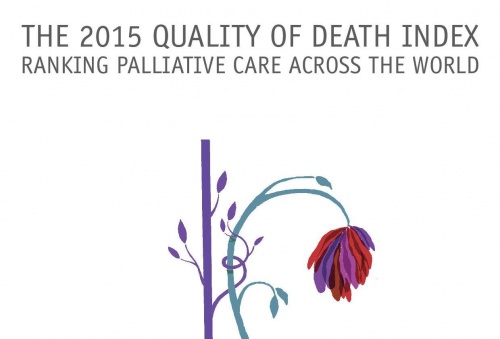Baroness Finlay, who today takes over as the National Council for Palliative Care's Chair of Trustees, introduced the Bill with a view to instigating 'the beginning of a comprehensive discussion around end of life care and hopefully, ultimately a change of law' which responds to 'the problems and failings of a system that has the knowledge of what needs to be done but fails to make it happen'. Such aims were recently endorsed by 60 MPs in an open letter to The Times.
The Bill was drawn ninth in the 2015-16 Lords Private Member's Bill ballot; its official summary is
A Bill to make provision for equitable access to palliative care services; for advancing education, training and research in palliative care; and for connected purposes
Writing for the Huffington Post in June, Lady Finlay cited this year's Parliamentary and Health Service Ombudsman's 'Dying without Dignity' report, which highlighted areas of concern including 'poor communication with families... poor planning and fragmented, uncoordinated care, often compounded by inadequate out of hours services... and poor pain management...' Inequalities relating to patients' 'age, where they live, their level of education and type of illness' were also flagged up by researchers at the London School of Economics in a different report produced this year for Marie Curie Cancer Care.
Lady Finlay explains that
Despite the UK being a global leader in the provision of palliative care services, there is a lot that needs to be done in order to be able to claim that patients, their families and their carers in this country get the care and support they deserve.
To achieve these goals, we need to ensure that all health and social care providers have received the necessary education and training in palliative care and are therefore ready to provide services of the highest standards.
We should never forget that people that experience serious or life-limiting health problems need to have access to pain and symptom control that would comfort them and help improve the quality of their lives. This needs to be a priority for every health and social care professional and a neglect of an individual analgesic requirements should be regarded as a failure to deliver on their duties.
The Bill also seeks to ensure patients' decisions about their treatment are at the heart of care. This will give the sense of power and control back to people especially in times of great uncertainty. All staff need to be trained to handle the sensitive communication between them, the person that is dying and their loved ones, providing emotional and psychological support at all times. Finally, the Bill will inject further flexibility and trust into the system as it will help resolve problems such as healthcare professionals' access to essential medication for palliative patients at all times and access to specialist advice for those with complex needs.
The Palliative Care Bill lays the foundations for a more efficient, humanised and universal palliative care system that will place the patient and their needs at the centre. Any conversation around assisted dying would only distract our attention from what is truly important - the fact that everyone at the end of life needs access to the expert. Through this access this will enable them to ensure that what they experience, and what lives on in the memories of those left behind, is the good death that we aim to make possible for everyone.
Follow the Bill's progress at the UK Parliament website
Read/download the Access to Palliative Care Bill
© Image copyright of David Sheales and licensed for reuse under Creative Commons License 2.0








